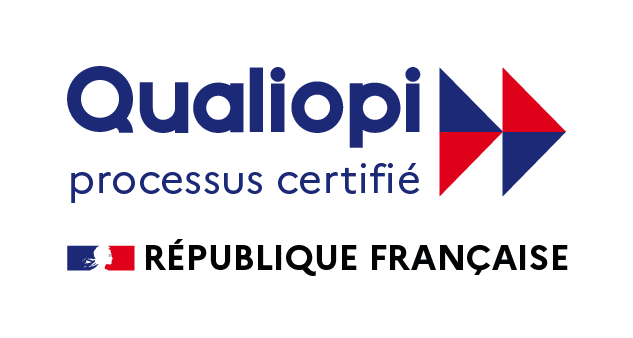Reading time: 8 min
We continue our series on the soft skills of tomorrow according to Open Mind. The 1,500+ cognitive and emotional assessments we carried out with French executives and managers enabled us to put into words the cognitive and emotional issues they encounter on a daily basis, and what skills they have or need to develop to deal with them. We spoke to you here about emotional regulation as the first soft skill to possess. Now we’re going to continue our discussion of emotion-related soft skills and tell you about an essential skill that forces us out of our comfort zone: vulnerability.
The first, and almost only, person to talk about vulnerability at work is Brené Brown, a researcher in the humanities and social sciences at the University of Houston. So the idea of making room for vulnerability at work is still touchy. However, we are convinced that vulnerability and authenticity are essential to professional fulfillment and performance.
VULNERABILITY IS THE COURAGE TO BE ONESELF
It’s hard, it’s uncomfortable, it’s no picnic. Vulnerability means developing our tolerance for discomfort. But it’s essential, because to connect with others, we have to show ourselves as we are. When someone is inauthentic, hides their emotions or transforms them, we feel it directly.
Think about all the important human connections you’ve created in your life: friends, colleagues, “significant others”, each relationship has been made possible by the expression of your vulnerability and theirs. It’s what you expect the other person to share of themselves. Even if it’s often the last thing we want to show of ourselves. And yet, Brené Brown puts it perfectly: “The most powerful words we can hear when we’re in trouble are: ‘Me too'”.Human relationships are our reason for existing. It’s what gives purpose and meaning to our lives.
Most of the time, shame underlies our inability to be vulnerable. If I reveal this aspect of myself or this emotion I feel, I show myself weak and will lose the relationship I have with others and their respect. People who don’t dare to be vulnerable are afraid of disconnection, afraid of not deserving that human connection if they reveal a part of themselves they’re ashamed of. People who succeed in being vulnerable are authentic. They have abandoned the idea of who they would like to be in the eyes of others, to be who they really are, which is an imperative for entering into relationships with others. Etymologically, courage is telling who you are with all your heart.
VULNERABILITY WITHOUT LIMITS IS NOT VULNERABILITY
However, vulnerability at work is not about showing everything about ourselves. Nor is it about exposing our deepest fears and anxieties on first contact. It’s about sharing what’s appropriate for the workplace and what can help the relationship with colleagues.
Brenée Brown gives this example: a corporate executive makes a speech to his employees about an upcoming merger. He can’t say “I’m panicking, I don’t know what I’m doing, or what I should do”. It would be the wrong time and the wrong people to express his anxieties. You have to choose what to say, when to say it and with whom. To make the right choices, we need to put our motivations into words. “If I’m expressing these anxieties about the merger, it’s because I want help, I want someone to advise me so that I’m less stressed”. In such cases, the executive would be more likely to turn to a mentor or peer group, where the problem resonates.
THE POTENTIAL TO BE VULNERABLE IS A TRUE MEASURE OF MANAGERIAL COURAGE
The role of the leader, manager or executive is central to creating a corporate culture that allows vulnerability. When you’re a leader, just like when you’re vulnerable, you can’t avoid being at risk or uncertain. Managers and executives must be the first to promote this behavior, and not be afraid to express their emotions.
When a leader shows himself to be vulnerable, he’s sending out a clear message that he too is experiencing difficulties, and could use some help. This behavior becomes a model for his colleagues, who are then not afraid to ask for help rather than remain stuck on their own, and stop all productivity. It’s a clear sign to employees that they can trust each other and ask for help.
Conversely, when a leader fails to express vulnerability, such as admitting when he’s wrong or showing his limits, the effects are more devastating than you might think. Firstly, it can be perceived as intimidating and closed-minded. Secondly, it sends out the message to employees that they themselves cannot be vulnerable: no one acknowledges their mistakes, no one admits to having a problem, and no one dares to ask for help. Every little task awakens everyone’s insecurities.
VULNERABILITY AND PERFORMANCE
Vulnerability underpins many other soft skills, such as innovation, creativity, acceptance and adaptation to change, and team spirit.
Without vulnerability, how can we innovate? Trying something new requires vulnerability, because it means keeping in mind that failure is a possibility. Expressing vulnerability creates the space for “productive failure”, in the words of Brené Brown.
Vulnerability is also seen as the best way to build solid team relationships based on trust and mutual support. Such relationships make it easier to receive and give constructive, critical feedback, enabling us to evolve and improve.
You have to practice vulnerability. It doesn’t come right away. The more you practice it, the more you learn to manage the discomfort it creates. Living with discomfort for a while is worth it, because if we look at what is implied by the ability to be vulnerable, we’re touching directly on employees’ commitment to work.
Author: Anaïs Roux

